I don’t often go to Council meetings. In my experience they tend to be rather boring and I’ve generally avoided them. I was once asked if I’d like to stand as a councillor by the then Mayor of the borough where I live, but I declined the offer, not least because it would have meant joining the Conservative Party.
I’m not a member of any political party, though in the dim distant past I went to the meetings of the Labour Party youth, but really only because they gave out free cigarettes (this was back in the early 1960s – I gave up smoking when I was 21.) As a student in 1963 I did join the Labour club at university, and was very impressed by our President, Barbara Castle, then at her prime in her 50s, but then the Party decided we were all too left-wing and chucked us out.
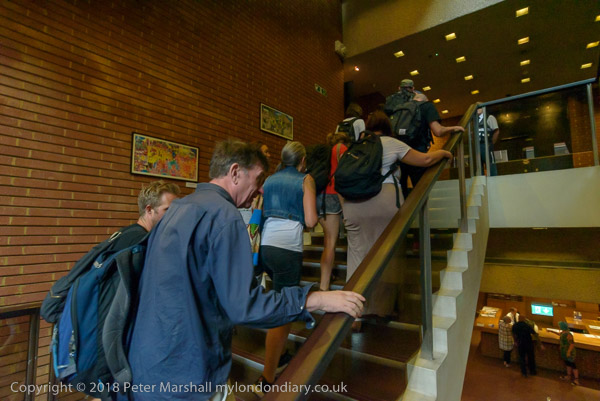
In the late 80s I joined the Ecology Party, which split to become the Green Party, but I didn’t stay long; at that time there were too many eccentric sandal-wearers and not enough people with any political sense, and though I’ve known and admired people at the top in more recent years, including Caroline Lucas and Natalie Bennett, I’ve never quite felt like joining. And although I like both Jeremy Corbyn and John McDonnell, both of whom I’ve met and photographed many times over the years, there are parts of the Labour Party I wouldn’t want to be associated with.
So although it might have been interesting to be a Conservative councillor on the very far left outside the party spectrum, I don’t think I would have lasted more than one meeting.
But on a Tuesday in August I did go to the public meeting with the planning committee of the Royal Borough of Kensington & Chelsea, and though it started in a rather prosaic fashion, things soon livened up, as I had gone in with around 30 members of the cleaner’s union, the United Voices of the World.
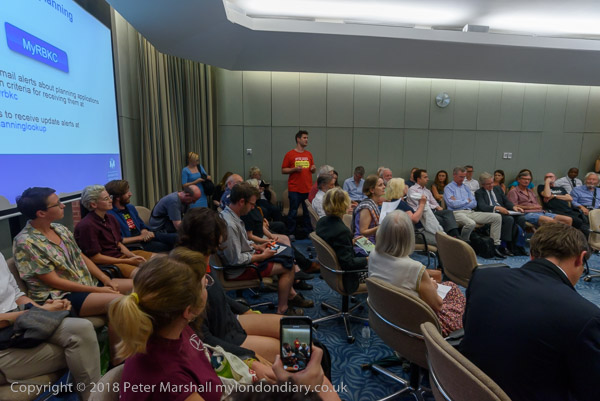
No sooner had the chair of the meeting outlined what was going to happen, than things began to run to a very different plan, with UVW’s Petros Elia standing up and interupting proceedings by demanding that the council pay their cleaners a living wage, and he was backed up by the others in the group who brought out banners and called for justice for the cleaners.
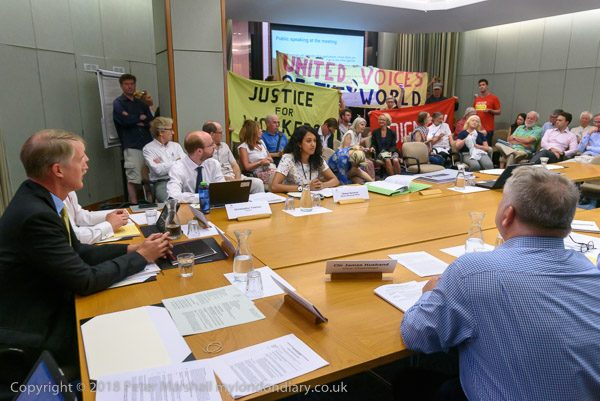
The protesters refused to back down, and after a few minutes argument, the chair led the members of the committee, except for one who remained, out into an adjoining room. A debate then took place between some of the public who had come to the meeting and the UVW. Local campaign groups wanted to present their case about a local development to the planning committee, and while they agreed that the cleaners should be paid a living wage asked them not to disrupt the meeting.
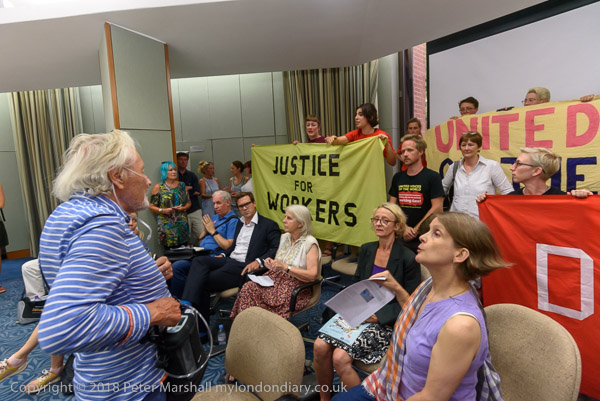
The cleaners who worked for the council had not come into the meeting but were holding a protest outside. They had been picketing the offices all day during a 3 day strike for the living wage and to be brought back into direct employment by the council rather than being employed by a contract cleaning company on the legal minimum conditions of service and badly managed. Earlier in the day council officers had said the council would bring them back ‘in-house’ but later that offer had been withdrawn. The UVW was angered both by this withdrawal of a promise, and also by the refusal of the council to talk with the union to which almost all the cleaners belong.
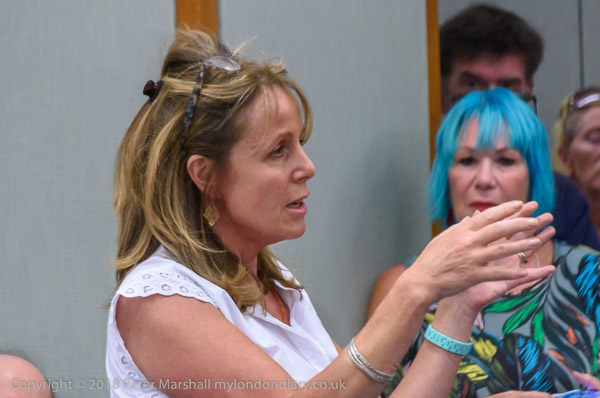
Eventually a woman who had been sitting with the public stood up and informed us all that she was a leading member of the council and promised that she would come and talk with the cleaners on the picket line the following morning, bringing with her as many of the other ‘cabinet’ members as she could arrange to be there to join in.
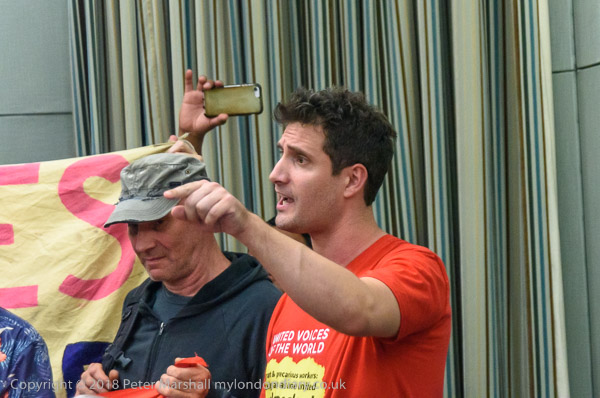
After some further discussion between her and Petros Elia for the UVW, the protesters agreed to leave the meeting to allow it to continue and went out to join the cleaners outside the offices and tell them the news. The protest had acheived a breakthough as before the council had simply refused to talk.
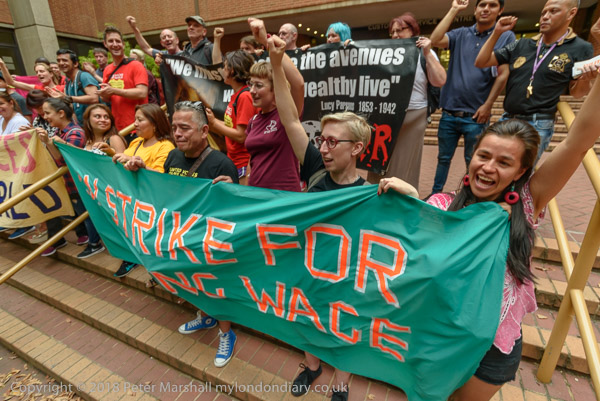
Less than a month after the strike and this action, the council agreed to ensure that the cleaners were brought up to the London Living Wage by December 2018 and to review the contract with Amey with the intention of early termination so the cleaners can be directly employed.
The cleaners who were currently paid on the minimum wage (renamed by the Tory government the National Living Wage, but well below a Living Wage in London) of £7.83 per hour will get an almost 30% increase. Coming into direct employment will bring them proper sick pay, longer holidays and better pensions as well as management that has to take much greater consideration of their health and safety and will hopefully be far more competent.
You can read more about the meeting and see more pictures at Council cleaners demand a living wage
______________________________________________________
There are no adverts on this site and it receives no sponsorship, and I like to keep it that way. But it does take a considerable amount of my time and thought, and if you enjoy reading it, a small donation – perhaps the cost of a beer – would be appreciated.
My London Diary : London Photos : Hull : River Lea/Lee Valley : London’s Industrial Heritage
All photographs on this and my other sites, unless otherwise stated, are taken by and copyright of Peter Marshall, and are available for reproduction or can be bought as prints.
To order prints or reproduce images
________________________________________________________